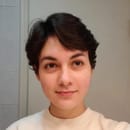On August 9, Alexander Lukashenko was re-elected in the presidential elections in Belarus. He won with 80% of the votes and will continue in the role for its sixth term. However, the result is being discredited as a fraud, and protests took the streets in the whole country.
- Many years in power
-
Belarus is a state of Eastern Europe that became independent of the Soviet Union in 1991. In 1994, the nation adopted a new constitution and elected a president, Alexander Lukashenko -Yes, he has been there since the beginning. In other elections, the process was already considered unfair or not free by west countries, and Lukashenko is considered “Europe’s Last Dictator”.
- Electoral race
-
In this year’s election, though, things are more extreme than never. The actual president competed with four other candidates, and only one managed to reach the polls. All the others were detained. The only one who managed to participate was Sviatlana Tsikhanouskaya, a 37-year-old English teacher, who accepted the opposition role after her husband, Sergei Tikhanovsky, the original candidate, was arrested in May. She claimed victory, being supported by the opposition, which alleged that there was widespread fraud. Electoral authorities, although, claimed that the victory was Lukashenko’s.
- The protests
-
After the polls, huge protests erupted as a movement demanding democracy and new leadership. Almost 100,000 people gathered in Minsk, the capital of Belarus, in consecutive manifestations since the results were announced. Thousands of people were arrested including journalists, amid reports of police brutality and torture.
But the protests continue to grow. Most of the opposition leaders are exiled, including Tsikhanouskava, who is in Lithuania, after she received threats. Other oppositions, like Veronika Tsepkalo and Maria Kolesnikova, also were arrested or exiled. And the condition of some opposition leaders is unknown.
With jails overcrowded, friends and relatives of those who went missing, are demanding information about detainees. Gatherings at detention centers became normal, while people are also bringing supplies for the prisoners of the regime, incarcerated in extremely poor conditions. On jails overcrowded and the risk of transmitting the coronavirus, Lukashenko suggests that vodka, sauna, and hard work might do the job to cure it.
- Positioning of other countries
-
At the beginning of the movement, Alexander Lukashenko asked Vladimir Putin, their a long time ally, to intervene. Putin answered that he would send police, if necessary. Belarus is a real partner of the country, recalling the times of the Union of Soviet Socialist Republic. Besides, Russia maintain a certain influence over the smaller nation. The support or not of Putin can be a decisive factor for the stay of Lukashenko in power, since the two countries have extremely close ties, depending on each other, like on the matter of natural gas.
Now, the country might face international sanctions, mainly by the European Union, that also intends to impose those for 31 top authorities of the government. On September 4, Svitlana Tsikhanouskaya urged the international community to impose sanctions against the president and his aides.
President Alexander Lukashenko, who assumed in the middle of the protests, said on September 8 for the Russian media that “he may have overstayed his time in office, but that he is the only one who can protect the country now”. The leaders of Belarussian and Russian met for a summit on September 14, in Sochi. At the meeting Putin said Belarusians should find a solution for themselves, through dialogue. But remains prepared to intervene if necessary and grants a loan of $1.5 billion to the country. Meanwhile, the country remains threatened, arresting people and repressing protests with violence.
———————————————————————
The article above was edited by Camila Nascimento.
Liked this type of content? Check Her Campus Casper Libero home page for more!


